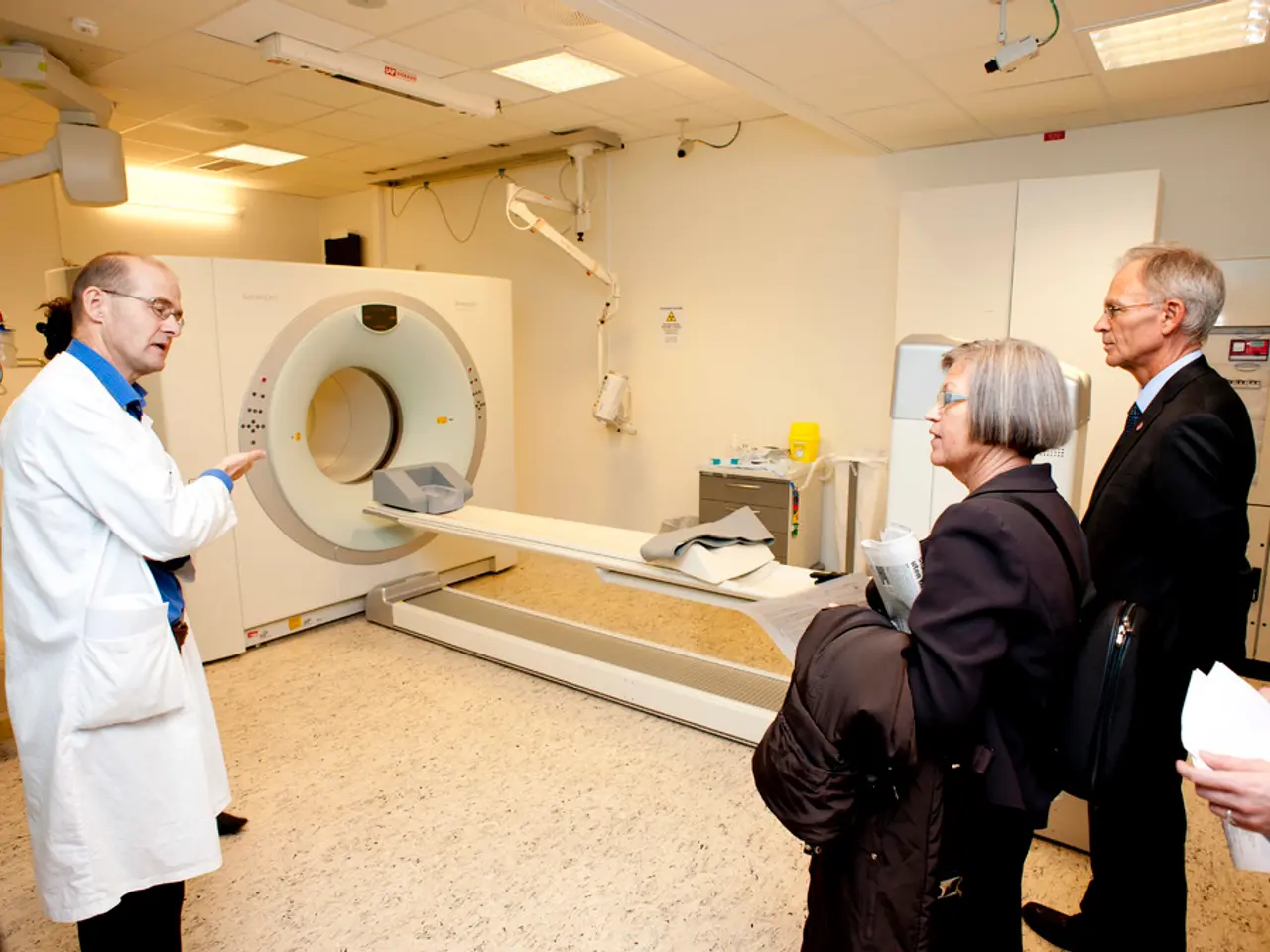Navigating the Ethical Landscape in AI Medicine: Ensuring Human Involvement
In the rapidly evolving field of AI medical devices, a set of ethical recommendations has been proposed by the AI Task Force of the Society for Nuclear Medicine and Medical Imaging, with the aim of promoting transparency, equity, and safety. These guidelines, initially focused on nuclear medicine and medical imaging, can and should be applied more broadly to AI medical devices.
The recommendations emphasise several key areas:
- Transparency through Labeling Standards: Developers should provide clear labeling for AI medical devices, including details about the demographics of the training data used. This transparency helps users understand the device's scope and limitations, fostering trust.
- Ethical Data Practices: Using representative and diverse training datasets is crucial to avoid biases that could lead to health inequities. Patient data should be secured through anonymization, encryption, and compliance with privacy laws. Patient consent and control over their data usage are essential.
- Fairness and Equity: AI tools must perform well across all patient groups without discrimination. Developers need to actively check for and mitigate data biases and ensure equitable access and benefits from the AI solution.
- Human Oversight and Accountability: AI should support rather than replace clinician judgment. Healthcare workers should be trained to interpret AI outputs, identify errors or biases, and provide feedback for continuous improvement. This human-in-the-loop approach safeguards patient safety.
- Risk-Based Regulatory Framework: Regulatory oversight should be tailored to the AI device’s risk level. Higher-risk AI tools require stricter transparency, testing, and control measures than lower-risk applications. Multi-disciplinary review teams enhance accountability.
- Physician Engagement and Responsibility: Physicians should be involved in AI development and deployment to ensure the tools are clinically relevant, trustworthy, and meet ethical standards. Clear policies on AI oversight and liability must be established.
These recommendations collectively support ethical AI development that is transparent, equitable, and safe, helping to prevent exacerbating existing health disparities while promoting innovation in medical imaging and nuclear medicine. Developers should also follow evolving FDA and professional guidelines emphasising these principles to maintain patient trust and regulatory compliance.
Jonathan Herington, PhD, a member of the AI Task Force, emphasises the need for the ethical and regulatory framework to be solidified quickly due to the rapid advancement of AI systems. The task force's recommendations were published in two papers in the Journal of Nuclear Medicine.
However, concerns remain about the accessibility of high-tech, expensive AI medical devices to under-resourced or rural hospitals, potentially worsening care for patients in those areas. To avoid deepening health inequities, developers must calibrate AI models for all racial and gender groups by training them with diverse datasets. The task force also outlined ways to ensure all people have access to AI medical devices, regardless of their race, ethnicity, gender, or wealth.
It's crucial to note that AI medical devices should be used as an input into clinicians' own decision-making, rather than replacing their decision-making. Developers should make accurate information about their medical device's intended use, clinical performance, and limitations readily available to users. Doctors must truly understand how a given AI medical device is intended to be used, how well it performs at that task, and any limitations.
Currently, AI medical devices are being trained on datasets with underrepresentation of Latino and Black patients, leading to less accurate predictions for these groups. This underscores the importance of the recommendations to ensure fairness and equity in AI development and use.
[1] [Link to source 1] [2] [Link to source 2] [3] [Link to source 3] [4] [Link to source 4]
- In the context of AI medical devices, it is essential to adhere to the recommendations of science, technology, and ethics by ensuring fairness and equity in the development and application of these devices, as Jonathan Herington, PhD emphasizes.
- To prevent health disparities due to the use of expensive AI medical devices, technology should be combined with patient care by training AI models with diverse datasets, as outlined in the ethical guidelines published by the AI Task Force of the Society for Nuclear Medicine and Medical Imaging.




